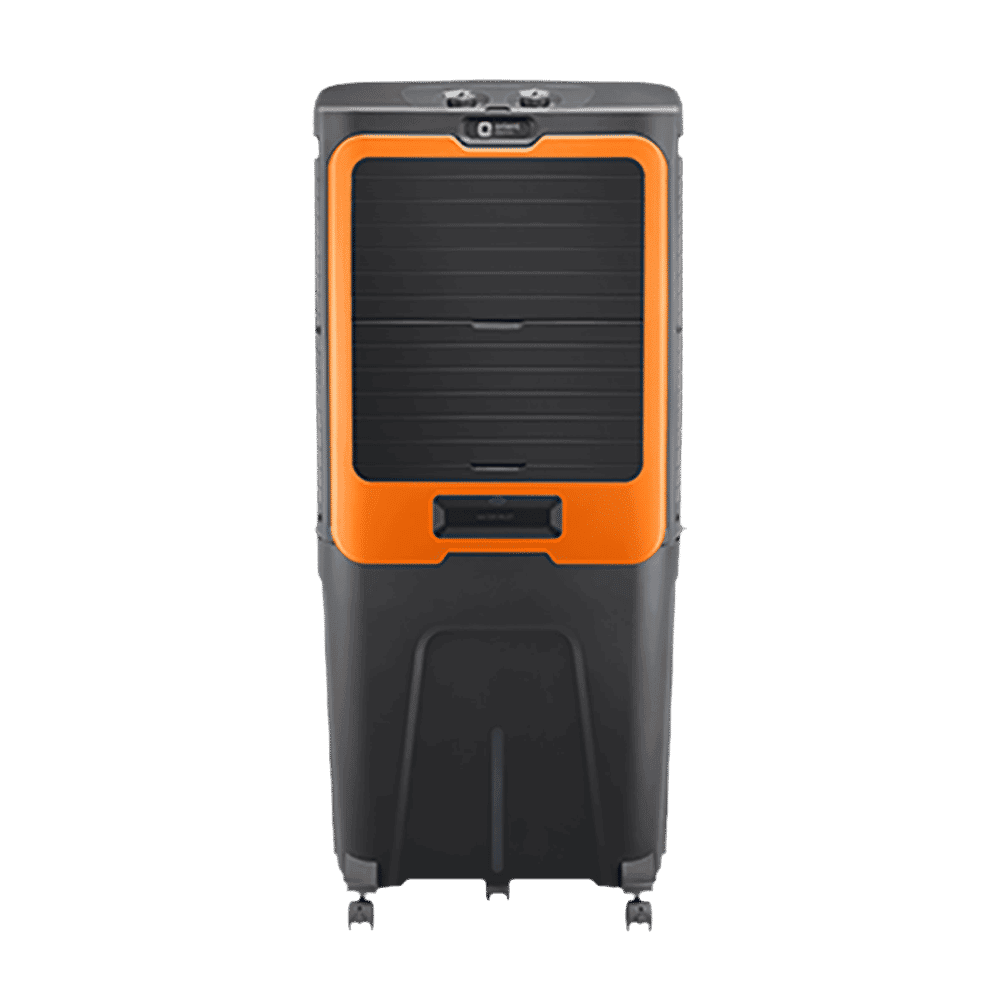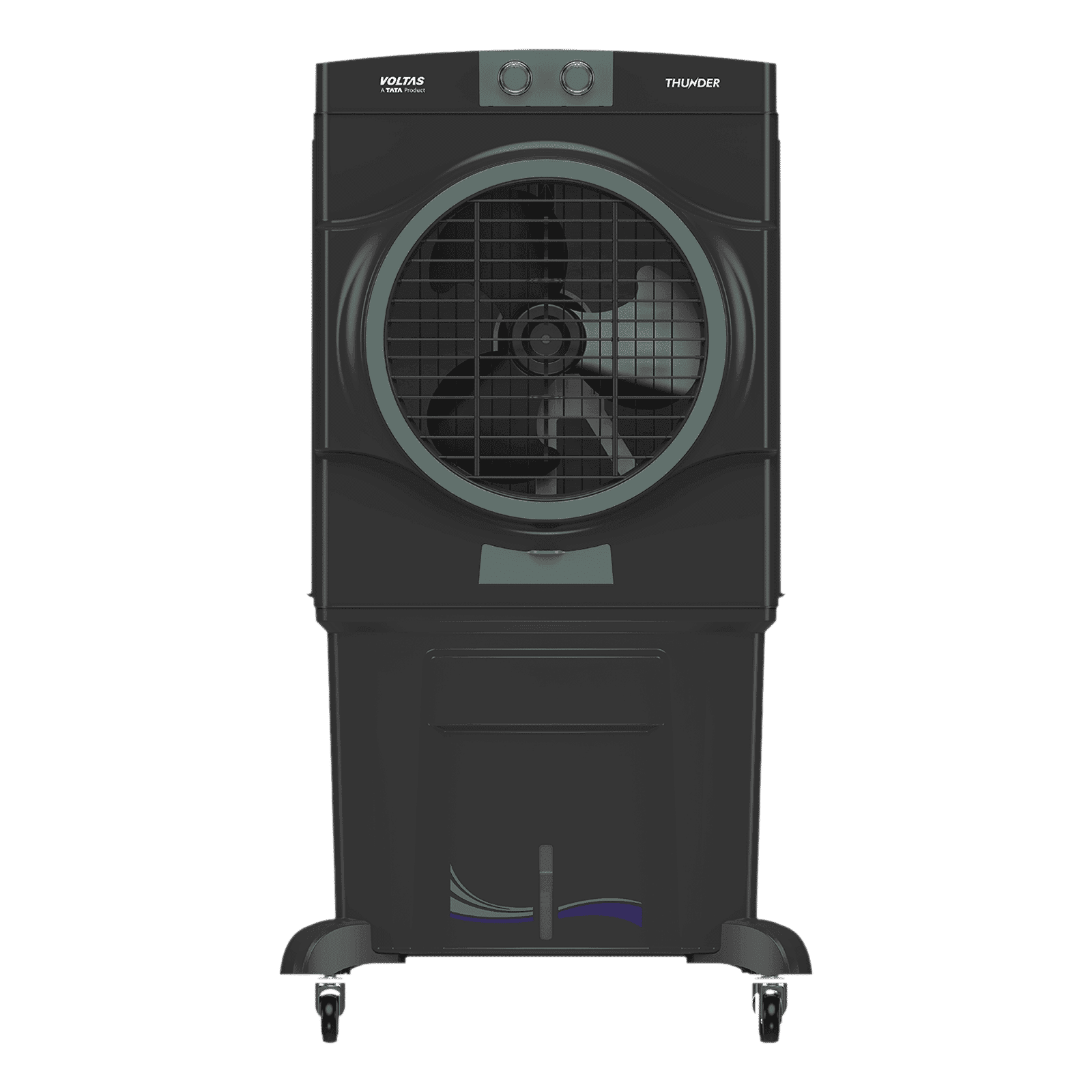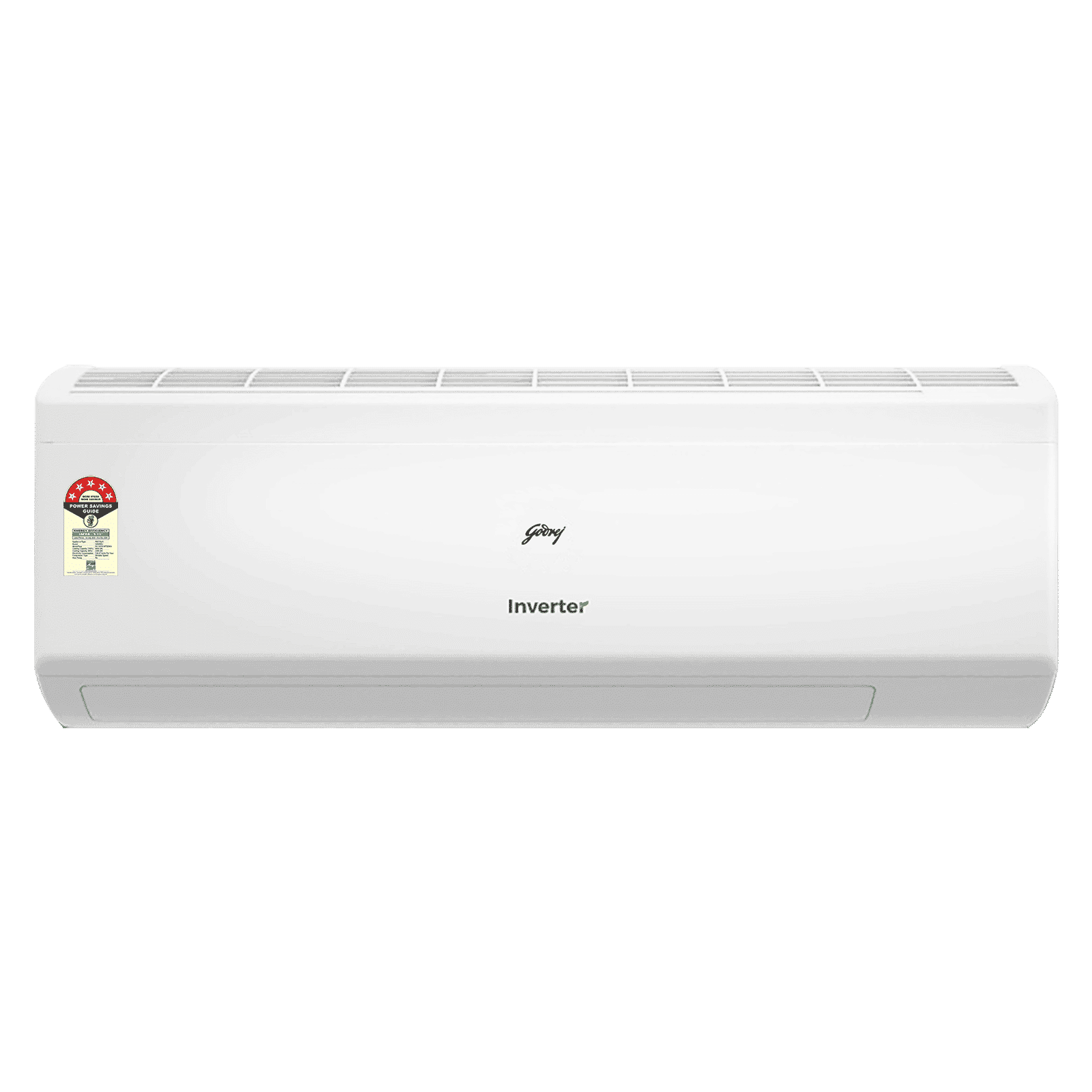
Home Appliances
•05 min read

Buy Orient Ultimo 88 Litres Desert Air Cooler with Aerofan Technology (Ice Chamber, Dark Grey) online at best prices from Croma. Check product details, reviews & more. Shop now!
When temperatures soar, the choice between an air cooler and an air conditioner can be daunting. With rising debates about which option truly suits individual needs, this article explores the differences in cost, efficiency, and overall impact on health, helping you make an informed decision. By the end of this read, you'll have a clear understanding of whether an air cooler is good or bad for your requirements.
Air coolers use the principle of evaporative cooling to lower temperatures. They rely on water and a continuous air stream, enabling them to cool the surrounding air naturally. This cooling method makes them an ideal choice in dry climates, where the evaporation efficiency is at its best. The technology behind air coolers also contributes to energy efficiency, making them a budget-friendly option with lower electricity bills.
In contrast, air conditioners employ refrigerants and compressors to cool air. This technology allows them to operate efficiently in all climates, regardless of humidity levels. Air conditioners offer powerful cooling performance, efficiently reducing room temperatures even in extreme weather conditions, though at a higher energy consumption expense.
The prime differences between these devices lie in their cooling mechanisms, portability, energy consumption, and installation requirements. Whereas air coolers primarily offer a natural cooling effect through evaporation, air conditioners are engineered for stronger cooling effects across various environments. These differences are essential while considering the keyword air cooler vs air conditioner, ensuring you understand the trade-offs involved.
Air coolers present several advantages, making them a popular choice among budget-conscious users and those interested in eco-friendly options. They are not only affordable and portable but also energy efficient. This results in reduced long-term electricity bills and supports sustainable living practices. Additionally, the benefits of air coolers include their lightweight design, which allows for easy movement between different spaces in your home. For many, this aspect is a significant advantage over fixed cooling systems.
Despite their advantages, air coolers have limitations. Their cooling performance can be less effective in humid climates where the rate of evaporation is reduced. They also require regular water refills and proper cleaning to prevent health issues. A common query is: What is the disadvantage of an air cooler? Simply put, the technology does not work as efficiently in areas with high moisture content, which might lead to a less satisfactory cooling experience. Moreover, improper maintenance could potentially lead to mould growth, affecting indoor air quality.
Did You Know?

Buy VOLTAS Thunder 85 Litres Desert Air Cooler with Thermal Overload Protection (3 Speed Control, Dark Grey) online at best prices from Croma. Check product details, reviews & more. Shop now!
Air coolers consume up to 75% less energy than air conditioners, making them an eco-friendly and cost-effective choice for cooling in dry climates.
Air conditioners are renowned for their robust cooling performance. Their ability to control humidity makes them a reliable choice in both dry and humid environments. With advanced refrigerant technologies, these systems ensure quick and consistent cooling irrespective of the weather conditions outside. This reliability and performance can be especially beneficial when conditions demand rapid temperature reductions for comfort and safety.
However, air conditioners do come with their challenges. The most notable disadvantage is their higher energy consumption, which may lead to increased electricity bills. Additionally, they often require professional installation and regular maintenance, adding to the overall cost of ownership. Furthermore, the reliance on refrigerants raises environmental concerns, as they carry a potential impact on global warming over time if not managed properly.
An important factor for many is air cooler energy consumption. Air coolers generally use a fraction of the energy required by air conditioners. This not only results in long-term savings on electricity bills, but also positions them as a more environmentally friendly option. Their lower power requirements align well with budgets and sustainable living goals, making them attractive for households mindful of g: energy use and associated costs.
Many users ponder whether an air cooler is good for health. These devices can actually improve air quality by humidifying dry indoor air, which may be beneficial in preventing respiratory issues during dry seasons. However, the key lies in proper maintenance – failure to clean the unit regularly can lead to the growth of mould and bacteria. It is essential to ask: Is air cooler bad for lungs? In well-maintained appliances, air coolers are generally safe, but those neglecting upkeep might inadvertently expose themselves to allergens.
Maintaining your air cooler is crucial for ensuring optimal performance and prolonging its lifespan. Regular cleaning is important to avoid the accumulation of dust and mold. Ensure that water is replaced frequently and that internal components are cleansed with mild detergents. These air cooler maintenance tips will help maintain its cooling performance and enhance indoor air quality. Remember, a little care goes a long way when it comes to keeping your device running efficiently.

Buy Godrej I Series 5 in 1 Convertible 1.5 Ton 5 Star Inverter Split AC with Anti Dust Filter (2024 Model, Copper Condenser, SIC 18ITC5-WYS) online at best prices from Croma. Check product details, reviews & more. Shop now!
Choosing the right air cooler involves considering factors such as room size, climate, and individual cooling needs. When making a decision, think about the different types of air coolers available – from personal and tower options to window and desert coolers – each offers unique benefits tailored to specific environments. A comprehensive air cooler buying guide ensures that you match the product’s features with your personal requirements, thereby maximising your comfort and energy savings.
It is also worthwhile to explore the range of offerings available through trusted online platforms where you can earn NeuCoins on every purchase, further enhancing your shopping experience. With features like Express Delivery for orders placed before 6 PM, you can enjoy a seamless process from selection to home delivery. This provides not only convenience but also valuable rewards that support smart, cost-effective shopping.
Air coolers are less effective in humid climates and require regular water refills and thorough cleaning.
Air coolers can improve indoor air quality by adding moisture, but improper maintenance might lead to mould growth, which can be harmful.
Air coolers offer energy efficiency and portability, whereas air conditioners provide stronger cooling performance, especially in humid climates.
Yes, it is generally safe to sleep with an air cooler on as long as the unit is maintained properly to avoid excessive humidity and potential mold buildup.
Overall, while the debate between air coolers and air conditioners continues, it is important to weigh the pros and cons in relation to your specific needs. Air coolers are cost-effective, energy-efficient, and eco-friendly, ideal for dry environments, whereas air conditioners provide robust cooling across all climates but come with higher energy bills and environmental considerations. Assessing your budget, local climate, and desired health impacts will guide you toward the best option for your home.
Exploring the offerings available through trusted platforms, where advanced technology meets reliable after-sales support, ensures that your cooling needs are met with care and convenience. With fantastic NeuCoin rewards and benefits that let you shop smartly, you can transform your home environment effortlessly. Remember to check the availability of Express Delivery services to enjoy same-day comfort when it matters most.